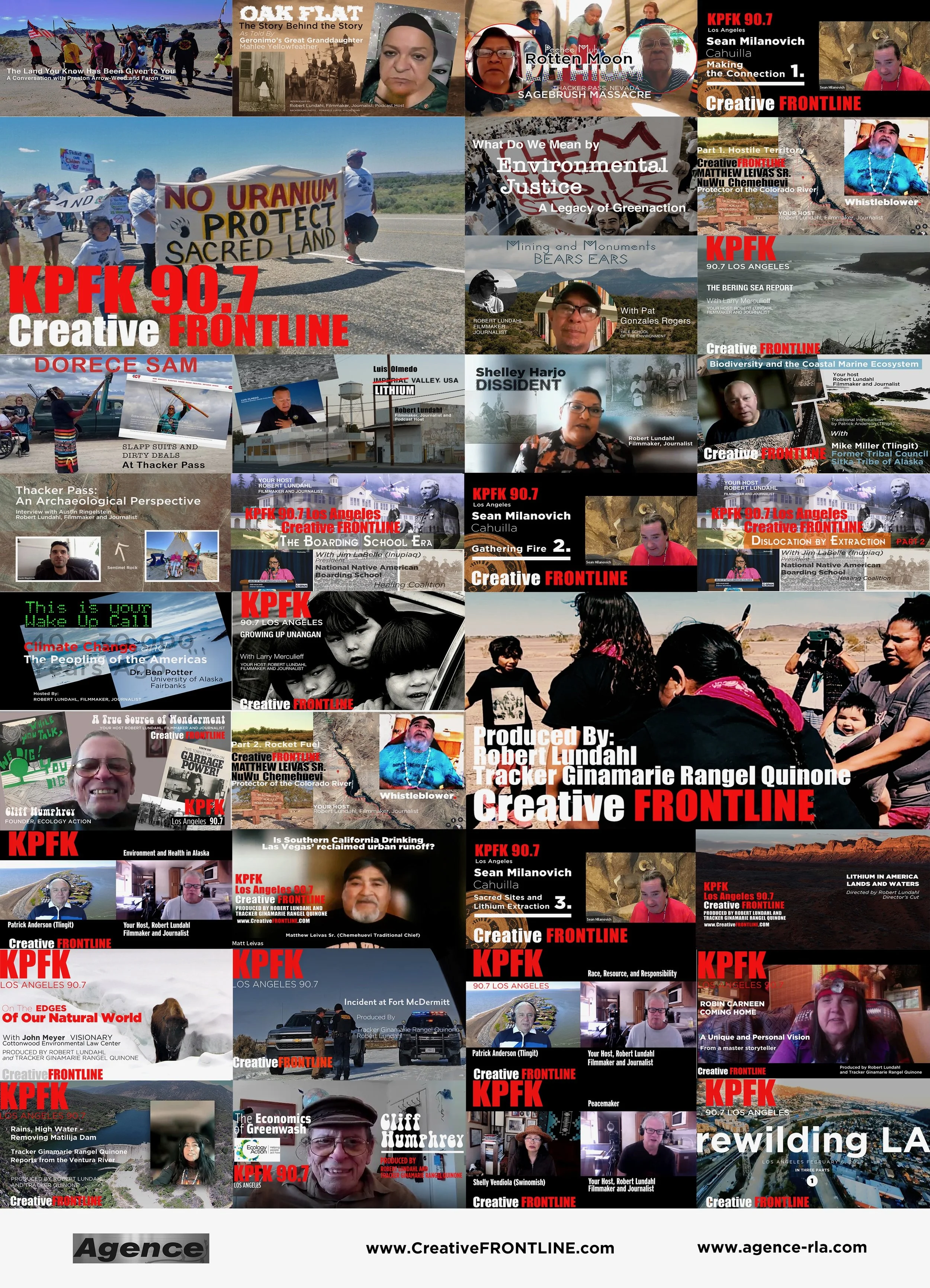Creative FRONTLINE is a weekly primetime series of Cinema Verite Radio Documentaries for KPFK Los Angeles 90.7.
All Episodes are available here on PRX.
The series has achieved remarkable success in elevating and amplifying environmental and water-related concerns in California, and has played a major role in affecting significant policy change in the state.
1. Cadiz Water Inc. License revocation by Governor Newsom and the State Lands Commission, many episodes produced with Chemehuevi Tribal Leadership.
2. Establishment of Chuckwalla National Monument, Southern Paiute/Chemehuevi sacred lands with Chemehuevi Hereditary Chief Matthew Leivas Sr.
3. 20 year halt of mining at Ash Meadows. Many episodes produced with Mandi Campbell (Timbisha Shoshone) and Chemehuevi tribal leadership and environmental groups.
4. Reviving the Lower Colorado River Basin. 7.2 billion allocated.
75 episodes on KPFK many focusing on Water in the West, the species, peoples, and agriculture.
Creative FRONTLINE on KPFK 90.7 FM Los Angeles / 98.7 FM Santa Barbara has played a key role in the battle to protect abundance and biodiversity at locations across the Colorado Basin, producing several shows week after week raising awareness of our ecological heritage.
Visit us on Soundcloud Visit the website
Request educational licensing and lesson plans robert@studio-rla.com
Read the story behind the story on Substack
Back to the beginning, Blowout is The story of the origin of the Environmental Movement in the United States. With David Pu’u.

